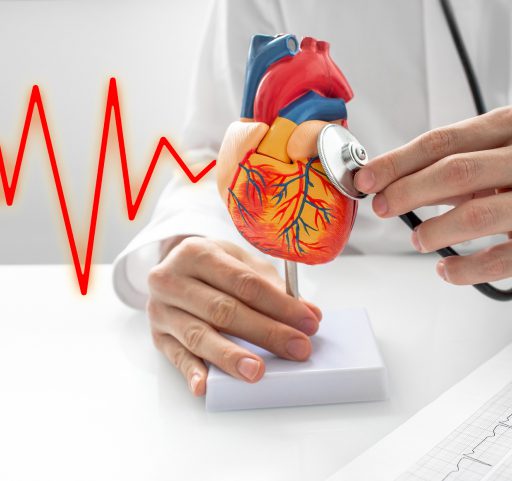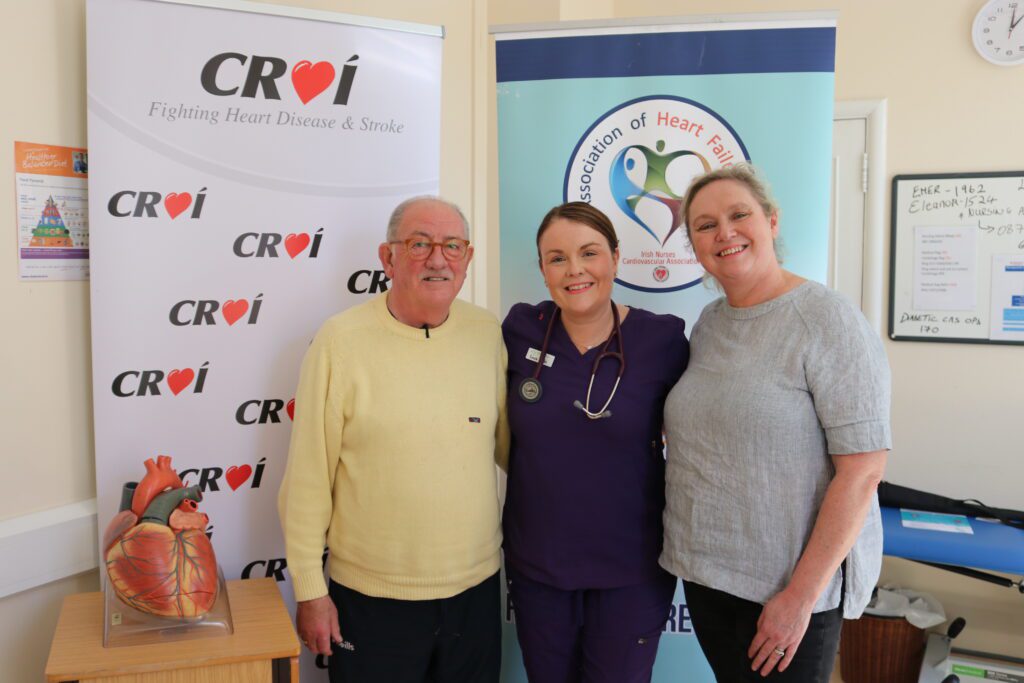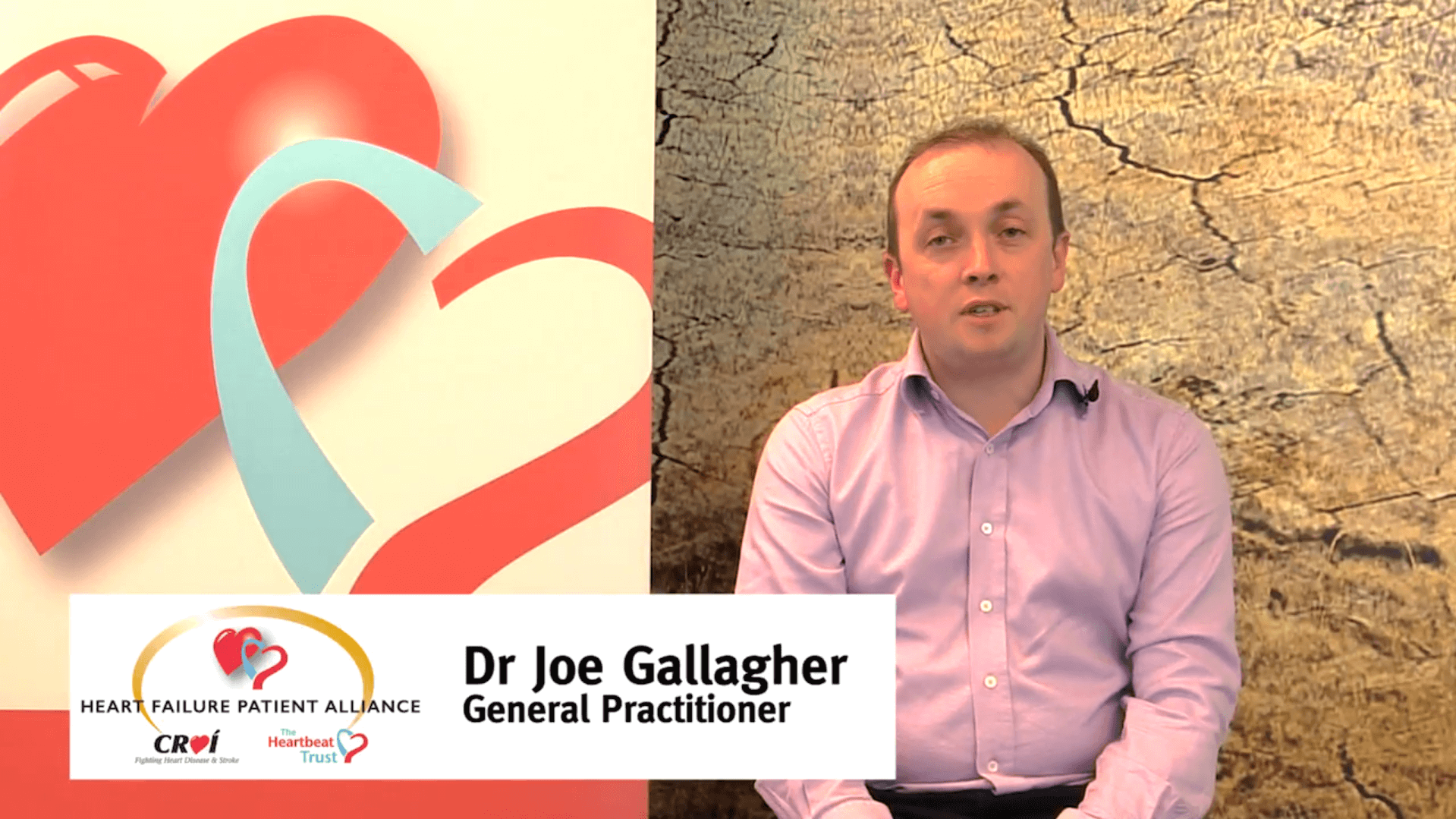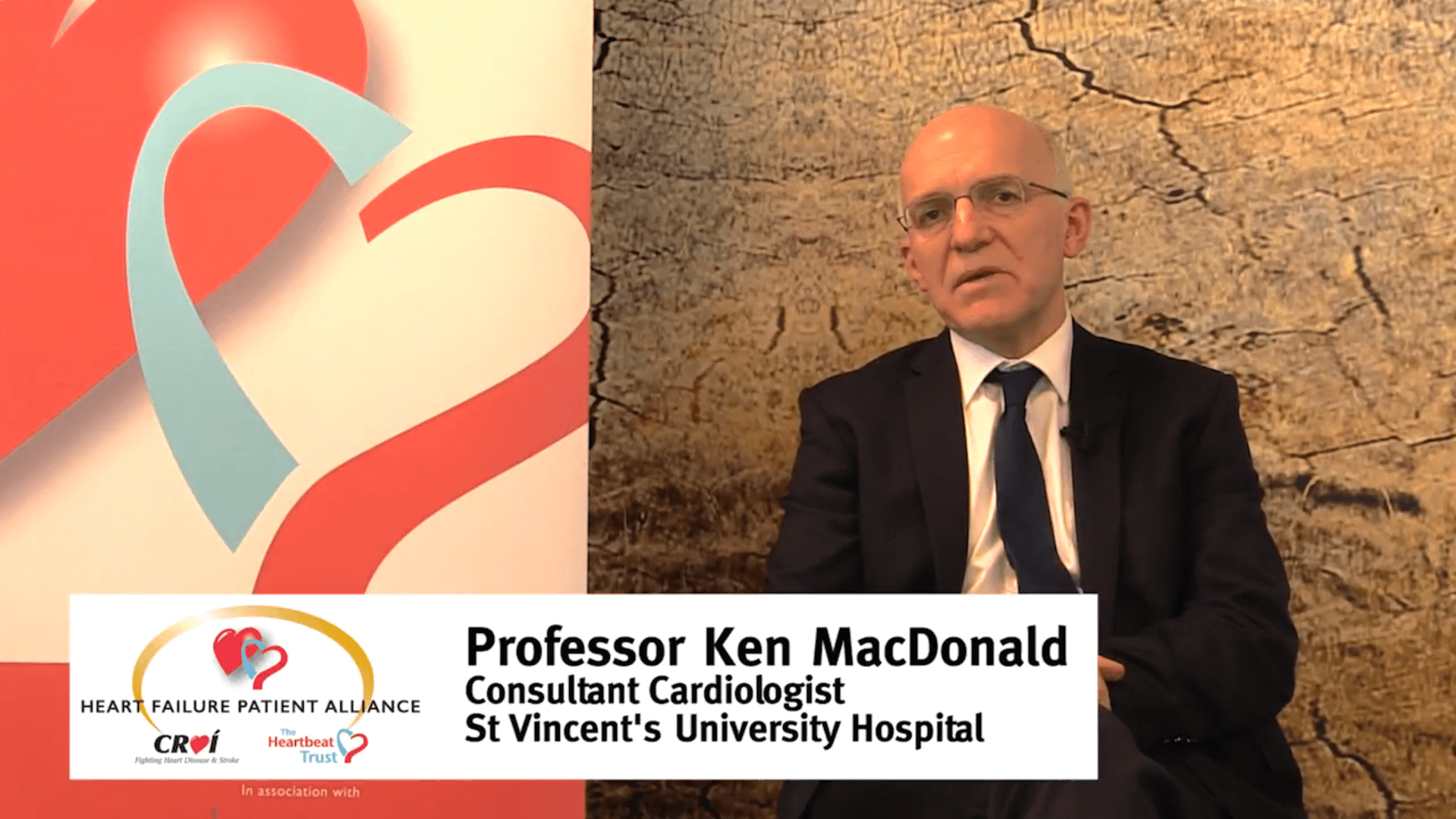What is Heart Failure?
Heart failure occurs when the heart is unable to pump blood around the body as well as it should. It does not mean that the heart has stopped working, but it means that the body is not getting the oxygen and nutrients that it needs to function normally. While heart failure is a serious medical condition, following your medical treatment plan closely and making positive lifestyle changes can help you manage the condition.

Heart Failure Awareness Week 2025 (May 5th to May 11th)
Croí is proud to support the Irish Association of Heart Failure Nurses (IAHFN) in their united stand with individuals living with heart failure, their caregivers, healthcare professionals, and the wider community. Together, we are raising awareness of this common yet often overlooked condition.
The European theme of this year’s Heart Failure Awareness Week, “Heart Failure Doesn’t Stop Us”, highlights the resilience, determination, and hope that people living with heart failure embody every day. Heart failure will affect 1 in 5 adults in our lifetime. Despite its challenges, many individuals find ways to live active and fulfilling lives, emphasizing the importance of early diagnosis, proper management, and a proactive approach to care.
Heart failure occurs when the heart does not circulate blood around the body as well as it should. When blood cannot circulate freely, congestion occurs causing fluid retention in the lungs, legs and stomach. Heart Failure can occur for a variety of reasons, as a result of damage caused by heart attack, high blood pressure, valve disease, diseases of the heart muscle and heart rhythm disorders. Heart failure can also occur due to other diseases, which ultimately damage the heart such as diabetes, lung diseases, excess alcohol, certain drugs, and infections.
Emer Burke, President of the Irish Association of Heart Failure Nurses says “Heart failure doesn’t stop us is more than a slogan. It’s a testament to the courage and strength of those facing heart failure, as well as the advancements in treatments and therapies that allow them to continue pushing forward. With the support of healthcare providers, lifestyle changes, and innovation in medical science, people with heart failure are leading productive and meaningful lives.”
Throughout Heart Failure Awareness Week, the IAHFN are encouraging the public to learn more about the symptoms of heart failure, including shortness of breath, fatigue, and swelling, and to recognize the importance of seeking early diagnosis and having regular health check-ups. Earlier diagnosis results in earlier access to treatments and interventions, which save lives.
From May 5th to May 8th, heart failure nurses will be hosting information stands and educational activities in hospitals across Ireland. Together this Heart Failure Awareness Week, we can foster a greater understanding of heart failure and support those who continue to live with strength and courage. Heart failure may challenge us, but it doesn’t stop us!


Dr. Joe Gallagher
Heart Failure Signs & Symptoms

Prof. Ken MacDonald
Heart Failure Signs & Symptoms
Your heart is the muscle that pumps blood around the body, located in the left side of the body, behind the chest. It carries oxygen and nutrients to the cells and collects waste products for removal. The heart has two sides, left and right. Blood coming back from the body (from organs and tissues) comes in to the right side of the heart. From there, the heart pumps the blood to the lungs, where the carbon dioxide is removed and the blood picks up oxygen. The oxygen-rich blood then goes to the left side of the heart and out to the body via the aorta (the largest artery in the body). The heart has four valves and they are there to make sure the blood flows in the correct direction.
Heart failure is caused by a number of conditions that damage the heart muscle in various ways. The most common causes are:
- Coronary heart disease
- Heart attack
- High blood pressure (hypertension)
- Faulty heart valves
- Cardiomyopathy (a disease of the heart muscle)
- Inherited heart problems (congenital heart problems)
- Abnormal heart rhythms (arrhythmias)
- Viral infection in the heart muscle
- Some lung, thyroid gland or kidney diseases
Some people do not know the cause of their heart failure and don’t have any of the common symptoms. In some instances, there is no obvious cause. Additional lifestyle and risk factors can also contribute to the condition, such as social isolation, life stress, smoking, alcohol consumption, obesity, not staying physically active and poor diet.
Heart failure can affect different people in different ways. Symptoms can come on suddenly and be initially severe (acute heart failure) or they can appear over time and gradually get worse (chronic heart failure). If you have heart failure, you may have one, or a combination, of these symptoms. The more common symptoms of heart disease are:
- Coughing/wheezing
- Extreme tiredness or no energy
- Loss of appetite
- More frequent urination, especially at night
- Rapid heartbeat or palpitations
- Shortness of breath, even when lying down
- Swelling in the ankles/feet/stomach
- Weight gain over a short period of time (>2kg over 2 days)
If you have any of the symptoms of heart failure you should visit your doctor immediately. Heart failure is a serious medical condition which, if left untreated, can lead to serious complications or even death. However, if you are diagnosed with heart failure, there are a number of things that can be done to help you manage the condition and live a healthier life. The diagnosis of heart failure is based on questions your doctor will ask you, a physical examination and medical tests that your doctor may recommend for you.
Your doctor will begin by asking you questions relating to any symptoms you may have, such as shortness of breath, persistent coughing/wheezing, build-up of fluid in the body, unusual tiredness or fatigue, lack of appetite, nausea, increased heart rate and extensive sweating. The doctor will then listen to your heart, check your heart rate and rhythm, check your blood pressure and check whether you have fluid in your lungs, legs or other parts of your body. You may then have to have some further tests to confirm the diagnosis. These include:
Blood Tests: blood tests are used to see if you have a normal blood count and to assess if your kidneys, liver and thyroid are functioning correctly. A very important test is B-type Natriuretic Peptide (BNP) test, which helps diagnose the level of heart failure.
Chest X-ray: a chest X-ray shows if your heart is enlarged and whether or not there is any build-up of fluid around the lungs.
Electrocardiogram (ECG): an electrocardiogram measures and records the rhythm and electrical activity of your heart. It shows if you have had a heart attack, if your heart rhythm is abnormal or if your heart muscle is enlarged.
Echocardiogram: an echocardiogram is an ultrasound scan that uses sound waves to produce a video image of your heart. It can show if you have had any previous heart attacks or if the heart valves have been damaged in any way. It also measures your Ejection Fraction, which is the amount of blood that can be pumped out of your heart every time it beats. This helps to tell how well your heart is pumping.
Stress Test: an exercise stress test involves exercising on a treadmill or a stationary bicycle. This test determines how well your heart responds to exercise and assesses if you have coronary artery disease. Symptoms vary widely from person to person and your doctor will decide which combination of tests will be the most appropriate to determine whether or not you have heart failure.
Heart failure is a chronic disease that requires lifelong management. The aim of treatment is to decrease the likelihood of the disease progressing, lessen and manage the symptoms you are having, improve your quality of life and help you live longer. For most people the treatment of heart failure is a combination of medicine and making positive lifestyle changes. Some people might also require surgical procedures to target the underlying problem.
Medication:
Diuretics: also known as water tablets, diuretics help your kidneys get rid of excess fluid and help in relieving swelling and shortness of breath.
ACE Inhibitors: help the heart pump blood around the body and are also used to manage high blood pressure.
Angiotensin II Receptor Blockers: these drugs work in a similar way to ACE Inhibitors and are prescribed for people with heart failure who can’t take ACE Inhibitors.
Beta Blockers: these slow the heart rate, reduce blood pressure and can limit or reverse some of the damage to your heart.
Cardiac Glycosides: this type of medication helps to slow down and strengthen your heartbeat.
Aldosterone Antagonists: these act like diuretics and block the effects of hormones that can increase symptoms of heart failure.
Sinoatrial Current Inhibitors: this medication slows the heartbeat so the heart doesn’t have to work so hard. It is generally prescribed for people who can’t take beta-blockers or are still having symptoms of heart failure despite taking other medicines to improve the condition.
Blood Thinners: if you have increased risk of blood clots or stroke, your doctor may recommend blood thinners to counteract this.
In some instances, in addition to taking medication, you may have to have surgery to treat the underlying problems that are contributing to your condition.
Heart Valve Surgery: if your heart failure is caused by damaged heart valves, you may have to have an operation to repair or replace the valve(s).
Cardiac Resynchronisation Therapy (CRT): if the bottom chambers of the heart are beating out of time with each other, a bi-ventricular pacemaker or CRT is implanted to help them pump in a more efficient and co-ordinated manner.
Implantable Cardioverter Defibrillator (ICD): an ICD is similar to a pacemaker but gives your heart an electrical shock if it were to suffer from a dangerous heart rhythm. It helps restore a normal heart rhythm.
Ventricular Assist Device (VAD): these devices are implanted in people whose heart is very weak and who may be waiting for a heart transplant. They help maintain the pumping ability of the heart when it can’t do so on its own.
Coronary Bypass Surgery: this involves taking a healthy blood vessel from your arm, leg or chest, which is then connected to an artery that is blocked. This means it diverts the flow of blood around the blocked artery via a new path and allows blood to flow freely through the heart.
Heart Transplant: when medication, lifestyle changes and surgery do not help, your doctor may recommend a heart transplant.
